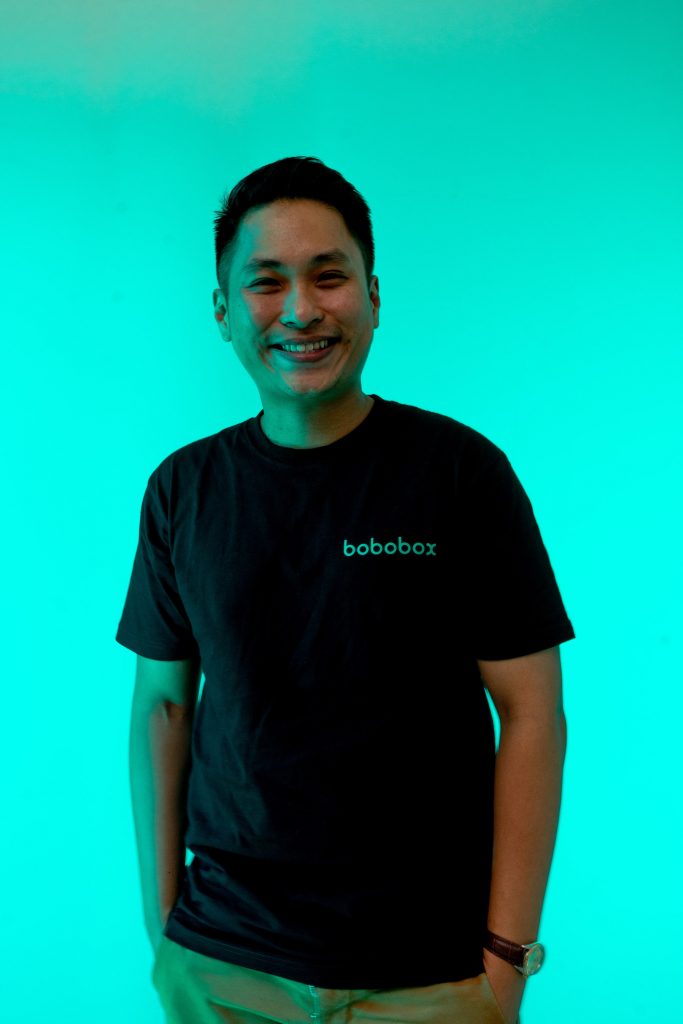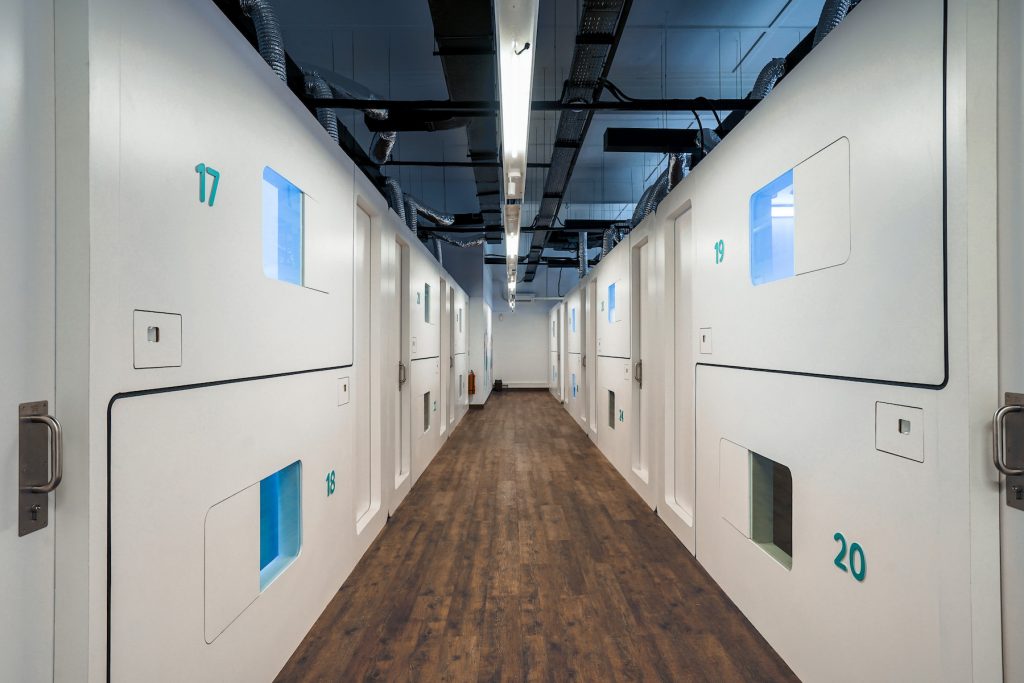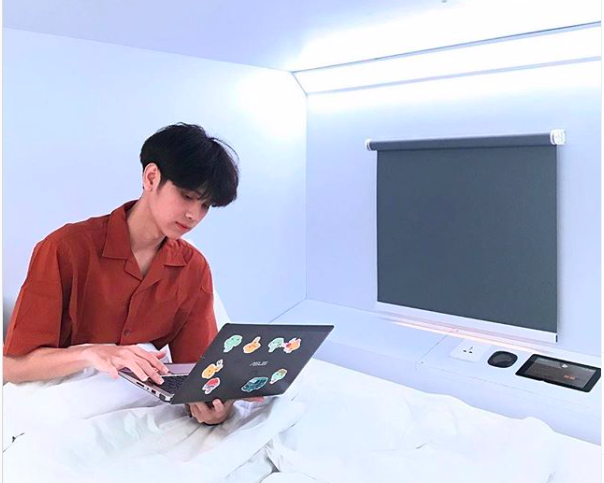Around the world, the COVID-19 pandemic is dragging the hospitality industry to a standstill. According to the Indonesian hotel and restaurant association (PHRI), more than 1,500 hotels across the country were temporarily shut down in April, with no reopening date in place. Yet, capsule hotel chain Bobobox is one of the few that have managed to thrive during these trying times. In fact, last month, the firm snagged USD 11.5 million in Series A funding from Horizons Ventures and Alpha JWC Ventures to open even more branches.
Most of Bobobox’s guests are short-haul holiday-goers and business travelers, so the company has set up its properties near business districts and tourist attractions. The firm currently has over 500 pods spread over eight locations in Bandung, Jakarta, and Semarang in Central Java. “Our business is certainly affected by the pandemic, but we are still able to maintain strong unit economics. Our room occupancy rate in downtown locations is now at 50–60% during the pandemic, while properties near tourist attractions have around 15% occupancy rate. This is higher than most hotels, where occupancy has fallen sharply to below 10%,” co-founder and CEO Indra Gunawan told KrASIA in a recent interview.
Bobobox was founded by Gunawan and Antonius Bong, and started operating in 2018 in the West Java city of Bandung, providing capsule rooms—or pods—that are equipped with app-controlled secure door access, customizable lights, Bluetooth speakers, compact working space, and personal air conditioners. A smaller pod with a single bed costs IDR 129,000 (USD 9) per night, while the king-sized option costs IDR 189,000, or nearly USD 13, about half the rate of budget hotels and a third of three-star hotels in Jakarta.

“The idea of Bobobox came in 2017. My family operates a hotel in Bandung, and I saw a huge demand for budget accommodation, but many hotel operators were having trouble making profits,” Gunawan said. “Budget hotels are dependent on online travel agent (OTA) platforms but they charge a high commission fee, around 15–18%. Moreover, budget hotel chains started to spring up at that time, making independent operators struggle to fill their rooms.”
The capsule hotel generates higher revenue per square meter than other budget accommodation models, Gunawan said. “The trend of capsule hotels was rising in many countries like Singapore, Japan, and China, to cater to the rise in single travelers looking for low-priced rooms. We went to these countries to see how capsule hotels can provide ultimate comfort, privacy, and security for guests, while giving better opportunities for operators to gain profit more quickly [than conventional hotels].”
For a while, things were extremely promising. Before the COVID-19 pandemic reached Indonesia’s shores, Bobobox’s occupancy rate was in the range of 80–90%. Every Bobobox branch is already profitable, according to Gunawan. Every room at a Bobobox location is 9 square meters and houses of two pods, each with its own door. Bobobox had implemented contactless services—where guests can book pods, check in, and check out using the Bobobox app, with no need to interact with receptionists—long before other companies adopted a similar approach because of the pandemic. This way, each branch requires fewer workers to be on site at any given time.

“Usually, a hotel’s staff and room ratio are 1:1 or 1:2, while the Bobobox’s [staff-to-pod] ratio is 1:12, so it is much more efficient. Since guests can check in via the app, most of our traffic and bookings come from the app, not OTAs, so we don’t spend so much on commission fees,” Gunawan said.
The CEO also said that 90% of Bobobox’s guests are Indonesian millennials. Before the pandemic, guests would stay for short trips that lasted one to two days. But the company has seen different guest behavior in the past few weeks. Many guests are now renting pod space for weeks at a time since wide-scale social restrictions are in place in some regions. “Some guests chose to stay at Bobobox due to its close proximity with offices, so they don’t have to commute and take public transportation. Some others stay here during the ‘work from home’ period as we offer high-speed internet connections and high-standard hygiene.”
In order to keep guests and its team safe during the pandemic, Bobobox has implemented preventive measures, including limiting the number of guests in common areas. It has strict cleaning protocols for each pod, where every surface is disinfected daily. All staff members and guests are required to wear clean sandals provided by Bobobox when entering the pod area. Bobobox’s on-site staff wears masks at all times, and all individuals who enter the premises must have their body temperature checked. Bobobox also has hand sanitizer stations in public areas at every branch.

Going forward, Bobobox will take its operations to new locations in Indonesia and Southeast Asia. The firm is now preparing seven new buildings in Java and Bali, and it aims to have at least 20 properties up and running by the end of this year. The firm is open to forming partnerships with landlords and property developers to build upon its expansion plans. “As our operations rely on technology, we’ll continue improving our tech capabilities and add more features to enhance the staying experience while developing new products to add more revenue streams,” Gunawan said.
As the Indonesian government loosens some restrictions in major cities, Bobobox is also preparing for the hospitality industry’s new normal. “I believe domestic tourism will recover faster [than inbound and outbound tourism], and people may opt for destinations not too far from home which can be reached by car or train. A high standard of hygiene is certainly a priority, and more hotels will invest in self-service technology, which we already started to do,” said Gunawan. “Therefore, we’ll use the recent investment to continue improving our tech capabilities, as well as to provide more training and offer better compensation and benefits to employees.”
This article is part of KrASIA’s “Startup Stories” series, where the writers of KrASIA speak with founders of tech companies in South and Southeast Asia.
